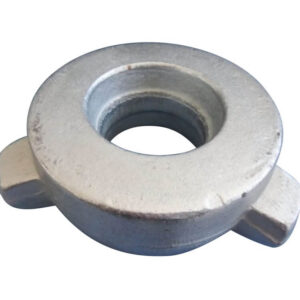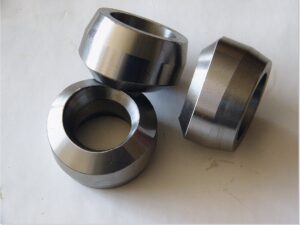forged steel fittings
What Are Forged Steel Fittings? A Comprehensive Guide
Forged steel fittings are essential components used to connect, control, and direct the flow of fluids and gases in high-pressure and high-temperature piping systems. They are manufactured by shaping metal using localized compressive forces, a process known as forging. This method results in parts with superior mechanical properties, making them the preferred choice for critical applications across various industries.

What Materials Can Be Used in Forged Steel Fittings?
While the term “forged steel fittings” is broad, it encompasses a range of material grades to suit different environmental and operational needs. The most common materials include:
Carbon Steel: This is the most widely used material. Grades like A105 (for high-temperature service) and A350 (for low-temperature service) offer an excellent balance of strength, toughness, and cost-effectiveness.
Stainless Steel: Used for its exceptional corrosion resistance. Common grades include SS304, SS316, and Duplex Stainless Steels for highly corrosive environments.
Alloy Steel: Grades like A182 F11, F22, and F91 are used for enhanced strength and creep resistance at elevated temperatures, common in power generation and petrochemical plants.
The Forging Process: How Are Forged Steel Fittings Made?
The manufacturing of forged steel fittings involves a precise and powerful process that enhances the metal’s grain structure. Here’s a simplified breakdown:
Billet Heating: A solid steel billet is cut to size and heated to a high temperature in a furnace until it becomes plastic and workable.
Forging: The heated billet is placed into dies (molds) that have the shape of the desired fitting. immense pressure is applied through a hydraulic or mechanical press, forcing the metal to fill the die cavity.
Trimming and Cooling: Excess material (flash) is trimmed off, and the newly formed fitting is allowed to cool under controlled conditions.
Heat Treatment: The fittings are heat-treated (normalized, quenched, and tempered) to relieve internal stresses and achieve the required mechanical properties like hardness and tensile strength.
Machining and Finishing: The fittings are machined to precise dimensional tolerances, and threads or bevels are added as per standards (e.g., ASME B16.11).
Quality Inspection: Each fitting undergoes rigorous testing, including visual inspection, dimensional checks, and often non-destructive testing (NDT) to ensure defect-free quality.
Why Forged Fittings Are Superior to Cast Fittings
When comparing forged steel fittings to cast fittings, the forging process offers distinct advantages:
Higher Strength and Durability: Forging refines the metal’s grain structure, making it continuous and directional. This results in superior impact and fatigue strength compared to the more porous and coarse grain structure of castings.
Better Structural Integrity: The forging process eliminates internal voids, gas pockets, and shrinkage, creating a more reliable part with greater structural integrity.
Superior Fatigue Resistance: Forged steel fittings can withstand repeated pressurization and stress cycles far better than cast fittings, making them safer for dynamic load applications.
Cost-Effectiveness for Size: While casting might be more economical for very large, complex shapes, forging is generally more cost-effective and stronger for the small to medium-sized fittings commonly used in industry.

Common Types of Forged Steel Fittings and Their Applications
Forged steel fittings come in various shapes and types, including:
Socket Weld Fittings: Used for permanent, high-strength connections in small-diameter piping.
Threaded Fittings: Ideal for applications where welding is not feasible or for easy disassembly.
Elbows, Tees, and Couplings: For changing direction, branching off, or connecting pipes.
Forged Steel Flanges: Used to connect pipes to valves, equipment, or other flanges.
These components are critical in demanding industries such as:
Oil and Gas: Onshore and offshore pipelines, refineries, and processing plants.
Power Generation: Coal, nuclear, and natural gas power plants.
Chemical and Petrochemical: Handling corrosive and hazardous materials.
Shipbuilding and Marine: For seawater systems and onboard machinery.
Industrial Manufacturing: Hydraulic systems and high-pressure process lines.
Custom Forged Steel Fittings: Built to Your Specifications
we understand that standard solutions don’t always fit unique challenges. That’s why we specialize in providing custom forged steel fittings tailored to your exact requirements.
Whether you need a specific non-standard size, a unique material grade, or a completely custom-designed component, our engineering and manufacturing team can deliver. We work closely with our clients to ensure the final product meets precise dimensional, mechanical, and performance specifications.
Contact us today to discuss your project needs and get a quote for your custom forged components.
